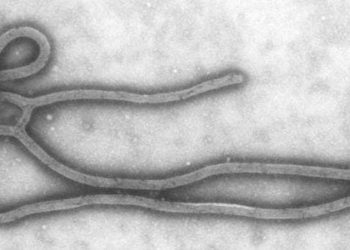Ebola virus rapid diagnostic test kit shows promise in point-of-care testing
1. The ReEBOV Antigen Rapid Test kit, which detects the Ebola virus VP40 matrix protein antigen, had 100% specificity and 92% sensitivity PCR in detecting Ebola virus compared to real-time RT-PCR using point-of-care fingerstick blood samples and whole blood samples.
2. Independent readers scoring results of the ReEBOV rapid diagnostic kit were in agreement 95% of the time in point-of-care samples and 98.6% of the time in reference laboratory samples.
Evidence Rating Level: 1 (Excellent)
Study Rundown: The ongoing Ebola virus outbreak in West Africa has brought attention to the need for a rapid bedside diagnostic test in order to contain further transmission while awaiting confirmatory results and reduce risks associated with the collection and transport of infected blood samples. Currently, blood samples from patients with suspected Ebola virus are collected via venipuncture and transported for diagnosis to a laboratory equipped with real-time reverse transcriptase PCR (RT-PCR), which can cause a significant delay before results are available. This study aimed to assess the validity of the ReEBOV Antigen Rapid Test kit, which detects the Ebola virus VP40 matrix protein antigen. The advantage of this test is that it can be used with little training and does not require extra instrumentation. Point-of-care fingerstick blood samples from 106 patients who presented with suspected Ebola virus at two Ebola treatment facilities in Sierra Leone, as well as 284 whole blood samples submitted to the reference laboratory, were tested to assess the validity of the ReEBOV test compared to the standard RT-PCR in diagnosing Ebola virus.
The results showed that the ReEBOV rapid diagnostic test had 100% sensitivity and 92% specificity in detecting Ebola virus in samples collected by point-of-care fingerstick as well as in whole blood samples submitted to the reference laboratory. Independent readers who scored the results of the ReEBOV test as positive or negative agreed on the scores in 95% of the point-of-care fingerstick samples and 98.6% of the whole blood reference laboratory samples. This study was limited in that the RT-PCR assay itself was an imperfect reference standard, which may have overestimated the true sensitivity and underestimated the true specificity.
Click to read the study, published today in The Lancet
Relevant Reading: Interim guidance on the use of rapid Ebola antigen detection tests
In-Depth [prospective cohort]: This validation study was conducted at two Ministry of Health Ebola care facilities in Sierra Leone from February 3-20, 2015, and included 106 patients who presented with suspected Ebola virus. Research technicians obtained a whole blood sample for standard clinical testing via RT-PCR and a fingerstick sample for the ReEBOV test. Two separate readers independently scored the results of the rapid test as positive, negative, or invalid, and if the results differed, a third unmasked reader scored the test. Additionally, 284 whole blood samples submitted to the reference laboratory from various facilities, including the two study sites, were tested using both the ReEBOV test kit and RT-PCR.
The ReEBOV rapid diagnostic test correctly detected positive results in all 28 patients who tested positive by RT-PCR (specificity 100%, 95% Confidence Interval [CI] 87.7-100), and detected negative results in 71 of 77 patients who tested negative by RT-PCR (specificity 92.2%, 83.8-97.1). Of the 284 whole blood samples submitted to the reference laboratory, the ReEBOV test also had 100% specificity in detecting positive results in the 45 positive specimens tested by RT-PCR (95% CI 92.1-100), and detected negative results in 214 of 232 samples tested as negative by RT-PCR (specificity 92.2%, 88.0-95.3). However, 6 out of 16 positive point-of-care ReEBOV tests that were negative by RT-PCR were re-tested using an alternate RT-PCR assay (Trombley assay) and found to be positive, and 3 of 18 samples that were negative in both were re-tested as positive in the alternate assay. Additionally, the scores from two independent readers agreed on 100 of 105 (95.2%) fingerstick samples and 273 of 277 (98.6%) whole blood reference laboratory samples.
Image: PD
©2015 2 Minute Medicine, Inc. All rights reserved. No works may be reproduced without expressed written consent from 2 Minute Medicine, Inc. Inquire about licensing here. No article should be construed as medical advice and is not intended as such by the authors or by 2 Minute Medicine, Inc.






